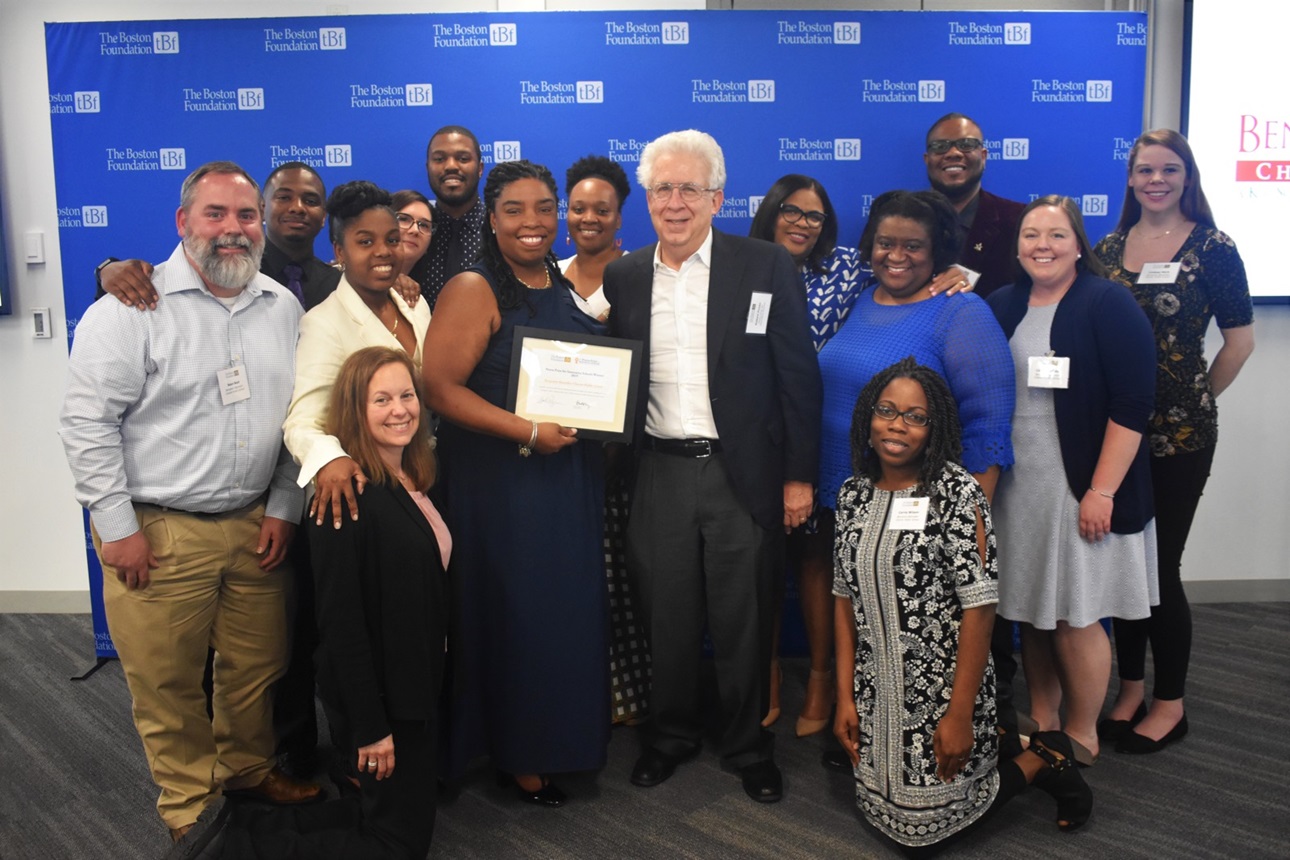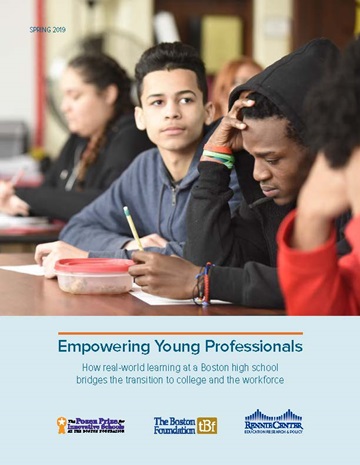Benjamin Banneker Charter Public School named 2019 Pozen Prize winner
May 16, 2019
Boston – The Benjamin Banneker Charter Public School, a K1-6 Commonwealth Charter school in Cambridge, Mass., has been selected as the winner of the 6th Annual Pozen Prize for Innovative Schools. The $80,000 award is given annually to recognize schools that consistently boost students’ achievements through innovative models, programs and practices. Conservatory Lab Charter School of Boston was selected as runner-up, receiving a $10,000 prize.
First awarded in 2014, the Pozen Prize highlights pilot, innovation, Horace Mann and Commonwealth charter schools that are finding creative ways to connect with students and help them succeed. The winning school each year must also have demographics at least as diverse as those of its school district.
Serving a student body that is over 95% African-American and Hispanic/Latino, and with 77% considered “high needs” (versus 47% for the Cambridge school district), the Banneker features higher attendance rates, lower rates of chronically absent students and lower churn rates than the surrounding district. At the same time, Banneker’s students achieve high test scores in both math and English – substantially higher than the average test scores in the city school district.
“We are pleased today to recognize the Benjamin Banneker Charter for its more than two decades of demonstrated success,” said Robert Pozen, who created the prize with his wife, Elizabeth. “Since 1996, Banneker has built a community that combines a rigorous curriculum, a supportive faculty and regular community connections to create an educational experience that fosters academic excellence and love for learning.”
Founded in 1996, Banneker’s curriculum includes a robust STEM component, designed to give students hands-on experience within a rich technology-based learning environment. The school has taken advantage of its autonomous status to extend the school day and develop a robust after-school program. After-school programs are available until 6pm daily, and tutoring is made available to support students with academic needs.
“The Banneker demonstrates how a school can leverage autonomy to create a successful achievement culture for students that captures the essence of its community,” added Paul Grogan, President and CEO of the Boston Foundation. “With a dedicated, experienced, diverse faculty that reflects their student body, and by building in opportunities for community engagement through innovations like their Executive in Residence partnership, Banneker creates a continuous learning environment for faculty and students that allows it to succeed.”
The Banneker’s rigorous STEM curriculum, built on high expectations and student supports is interwoven with a rich student program called “The Banneker Experience,” that includes attending art performances, visiting museums, enjoying outdoor sports such as skiing and camping, and participating in school community service. Student outcomes demonstrate that high expectations and an understanding of the school’s unique population and community are working well. The curriculum is regularly reviewed and designed to be agile to better support the varied and unique needs of students and the rich mix of teacher strengths and instructional styles.
“Our selection as the 2019 Pozen Prize winner is a tribute to our staff, students, parents and community, all of whom play critical roles in our success,” said Sherley Bretous, Executive Director of Benjamin Banneker Charter Public School. “We have been fortunate to be able to use our status as a charter school to innovate with a solid focus on what is best for our students, shifting resources and tasks to address needs, provide opportunity, and create a community that will engage, inspire, motivate and support young learners. The Pozen Prize will give us an even greater ability to invest in those efforts.”
The Pozen Prize was created by Boston Foundation donors Robert and Elizabeth Pozen. Robert is a former top executive of Fidelity Investments and MFS Investment Management, who now serves as a Senior Lecturer at the MIT Sloan School of Management and a Senior Fellow at the Brookings Institution. Elizabeth is a retired psychotherapist who is now focusing on her career as a figurative artist.

